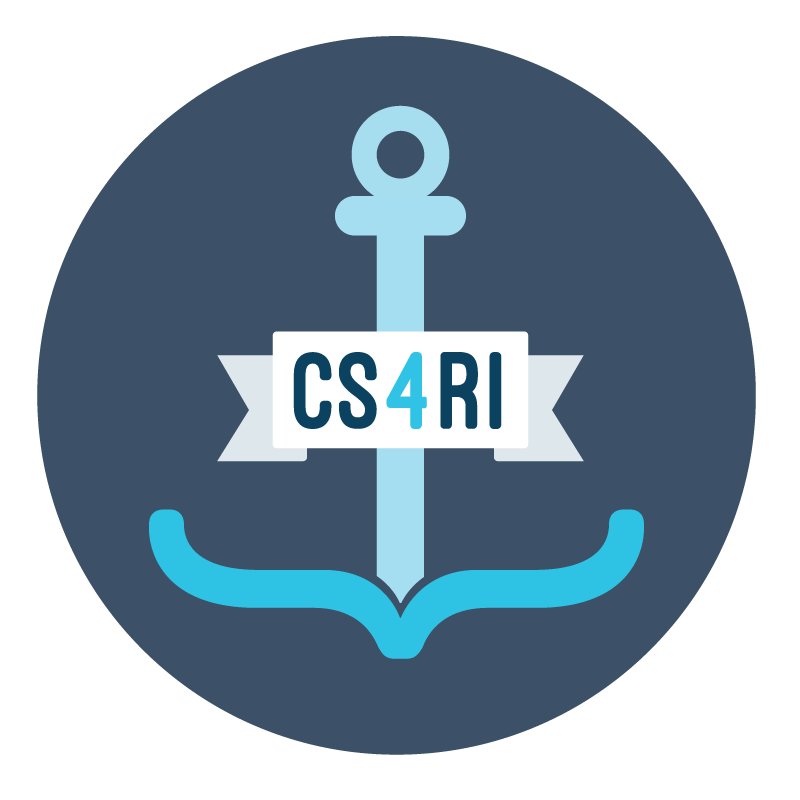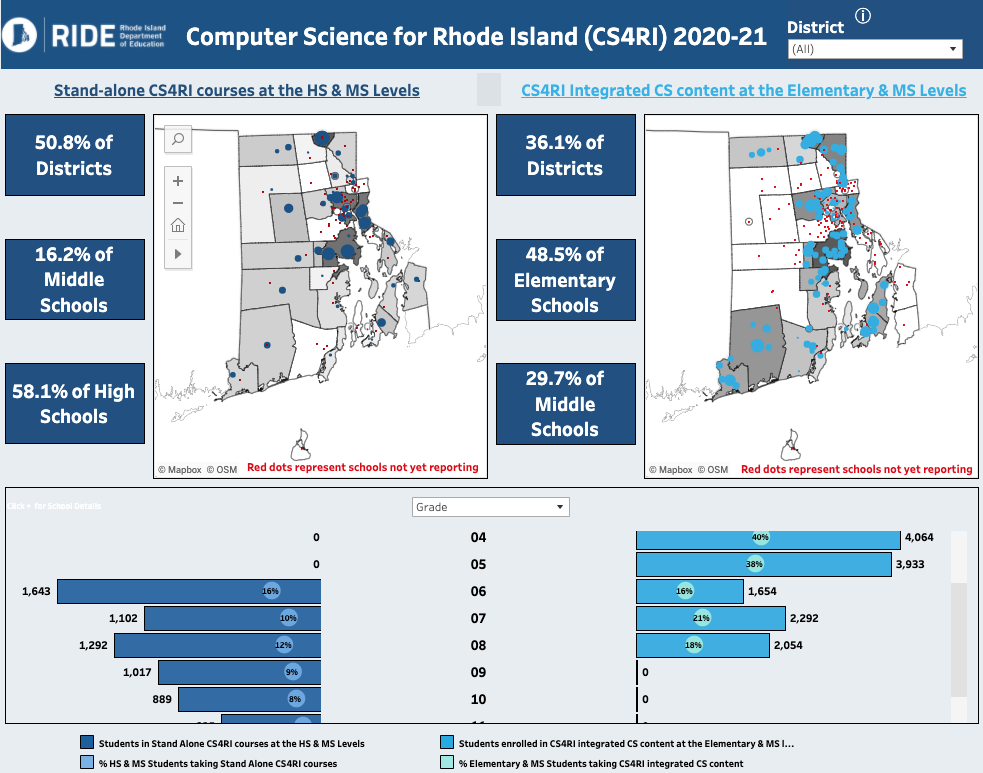The State of Computer Science in Rhode Island
Code.org developed nine specific policy ideas to help promote equity, growth, and sustainability in K-12 computer science.
Nine Policies to Make Computer Science Fundamental
2020 State of Computer Science Education (2020) - retrieved from advocacy.code.org
Key Focus: Broadening Participation
Although the principle Equity and Diversity is incorporated in each of the nine policies listed below, CS4RI has made broadening participation in computer science (BPC) among historically underrepresented populations a key focus.
CS4RI’s multi-dimensional approach is taking many forms:
Including a diversity coordinator on the CS4RI Core Team;
Requiring all RI CS content providers to demonstrate their support for broadening participation by including BPC elements in their curricula and professional development;
Offering an online course for RI CS educators which supports teachers in implementing strategies for recruiting, retaining, and teaching student who are historically underrepresented in computer science;
Incorporating BPC elements in all CS4RI workshops;
Connecting with other states to share and exchange ideas about increasing equity in computer science education; and
Participating in research projects across the country through the collection of data in Rhode Island.
Focus: Clarity
State Plan
Yes
CS4RI (a partnership between the Governor’s office and the Rhode Island Department of Education) created a state plan for computer science education implementation. One of the goals of the plan is to broaden participation among populations that are underrepresented in computer science.
Standards
Yes
Rhode Island adopted K–12 computer science standards in 2018. Standards within each grade band address concepts of equity, such as bias, accessible technology, and inclusivity. Additionally, standards can be met without computing devices or with limited hardware access, making implementation possible for all schools.
Focus: Capacity
Funding
Yes
H 5151A (FY 2020), H 7200A (FY 2019), H 5175 (FY 2018), and H 7454 (FY 2017) allocated $210K annually for computer science professional development. Grants focus on broadening participation, and priority is given to Title I-eligible schools. The Department received a $2.5M federal grant to support the creation of high school computer science pathways that incorporate work-based learning. for historically underserved and underrepresented populations.
Certific-
ation
Yes
In Rhode Island, teachers with existing licensure can obtain an endorsement through academic coursework from an approved provider.
Learn more about the Rhode Island Department of Education’s CS Endorsement.
Preservice
No
Rhode Island has not yet established programs at institutions of higher education to offer computer science to preservice teachers. The computer science teacher shortage can be addressed by exposing more preservice teachers to computer science during their required coursework or by creating specific pathways for computer science teachers.
Focus: Leadership
CS Supervisor
Yes
The Rhode Island Department of Education has a core team advancing the goals of CS4RI, including the Digital Learning Specialist, CS4RI High School Grant Project Manager, and CS4RI Work-Based Learning Specialist.
Focus: Sustainability
All HS Offer
Other
Rhode Island does not yet require that all secondary schools offer computer science. However, the CS4RI initiative and the Governor’s office set a goal for all students to have access to computer science courses by the end of 2017.
Grad
Credit
Yes
In Rhode Island, computer science can count as a mathematics or science credit for graduation.
IHE Admission
No
Rhode Island does not yet allow computer science to count as a core admission requirement at institutions of higher education. Admission policies that do not include rigorous computer science courses as meeting a core entrance requirement, such as in mathematics or science, discourage students from taking such courses in secondary education. State leaders can work with institutions of higher education to ensure credit and articulation policies align with secondary school graduation requirements.


